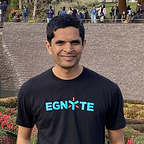Seven personal finance findings on remaining calm during coronavirus pandemic
Disclaimer: The below leanings are my opinion and I may be wrong, if you wish to apply them, then localize to your life and use with common sense.
This is the third market meltdown I have seen since I started working and even though I have lost 20–30% of my portfolio value this time I am calm and making only data driven decisions. In the 2008 meltdown I had cashed out in 401K at he bottom of market and sat on sidelines, lost money and opportunity and during 9/11 meltdown I was naive and only had CDs and didn't understood stocks for first 7–8 years of my working life.
Over this weekend I was brainstorming as to what changed in my approach and what’s different this time? I will distill some of findings below.
- Knowledge is power: Over the last 4–5 years I have been slowly absorbing as much as I can about personal finance and that knowledge has helped me make some sense of the market basics. I am still learning new things every day as its a journey and not a destination. IMHO the best investment you can do is “invest in yourself” and that knowledge will be your compass to navigate the market turmoils efficiently and keeps you pointing north. A quote from an Economist at NPR said “The key difference between risk and uncertainty is information, If you have information you can take a calculated risk as you have an idea how risky something is”.
- Investor policy statement (IPS) : Finance decisions are as much emotional as they are mathematical. Having an IPS removes emotions out of decision making process leading to less market timing in times of panic. For e.g. the day market was down 10% I was buying stock index funds than selling purely as my IPS triggered rebalance bands. For example my IPS says:
a. Have an emergency fund of 6 months in liquid assets to survive job loss. This is the best thing I did to keep calm and sleep peacefully during this turmoil.
b. Keep an Asset allocation of 80% stocks and 20% bonds (Age-20) and within stocks use 75–25 between US and international.
c. Every 5 year increase bonds by 5% to reach 60–40 ratio near retirement.
d. Rebalance assets to bring them back to the current ratio when they go out of whack due to market volatility and trigger rebalance thresholds.
3. Visibility : This is the best thing I did in last 2 years to bring calm into my decisions. As engineers we use tools like Newrelic, Grafana, Kibana and … to monitor current state of production at all the times so why not use same analogy and use tool like Mint, portfolio visualizer, personal capital or even basic spreadsheets to keep track of all assets and use that data to plot your networth, asset allocation and even run monte carlo simulation to see how you are tracking to retirement or FIRE goals.
4. Simplicity scales: Simplicity scales in engineering and it does scale in finance too. Once a rich person told me that “The only difference between your portfolio and mine may be the number of zeros, but the strategy behind it should be the same”. Yes, you can complicate things and squeeze every penny out of investments but do you have that much time out of your work, family and other things you enjoy? Therefore, keep things simple and even if you did the 20% things that matter most right, you will reach Rome eventually. For example I am a big fan of https://www.bogleheads.org/wiki/Three-fund_portfolio as it keeps things simple.
5. Diversification: Warren buffet said “Only when the tide goes out do you discover who’s been swimming naked.” therefore never take too much concentrated risk. I use broad market index funds to diversify and yes I do get average market returns but that is good enough for me.
The diversification of income also helps, I have been fortunate that my wife works in medical field and I am in engineering so it diversifies income and industry risk.
6. Living below your means(LBYM): Your rate of savings matter more than your investment returns and that can only happen when you live below your means and invest for the long term. When we are young it’s very hard for us to understand investing for the future but remember 10X changes requires 10X investment to produce 10X–100X outcomes. Of-course this doesn't mean you live on a Ramen diet as you need to enjoy current as well as save for future. You need to tag a purpose for percentage of your paycheck like 20% to retirement saving, 30% for known expenses, 10% for unexpected expenses,10 % for travel and …
7. Make mistakes early: You learn more from your mistakes therefore in finance you can afford to make mistakes early when you are young and balances are small, so make big mistakes early. For example I didn’t understood real estate much and I made a mistake 12 year ago and still paying for it but since then I do not try to invest a lot of my portfolio in things based on just because someone else is doing it.
As I said above, its a journey and not a destination, as I am learning more, my thinking is evolving and some of the above learning may change and morph.
